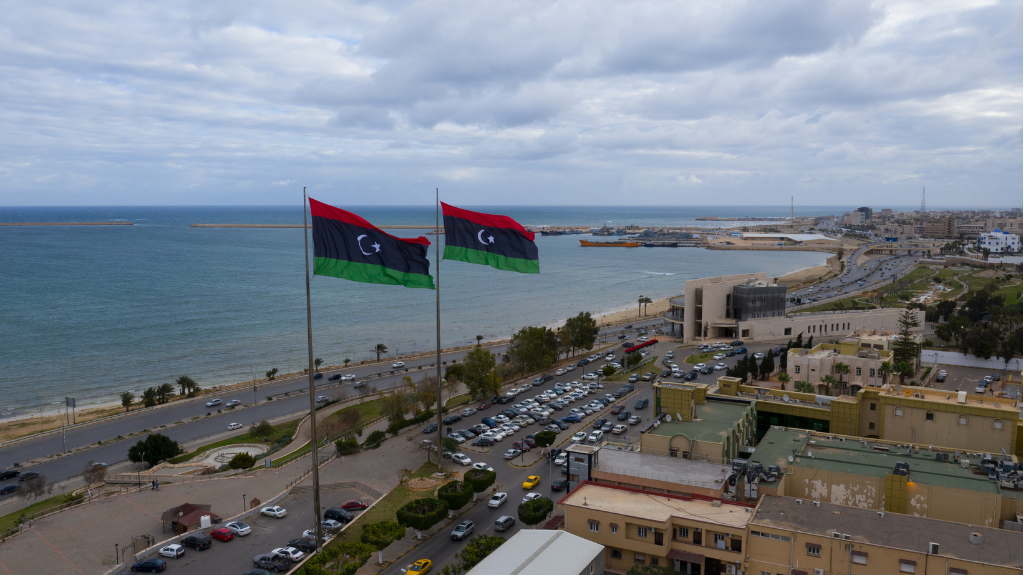Amidst Pandemic and Conflict, Chemical Security Progress in Libya Provides Hope

Academic and industry sectors are frequent users of hazardous and potentially weaponizable dual-use chemical materials. Chemical and petrochemical industries often use these hazardous chemicals to produce commodities such as textiles, cement, iron, and steel. But what happens when political instability and minimal safety protocols leave largely unsecured chemicals vulnerable to a chemical incident?
In Libya, for example, ongoing conflict, political instability, and more recently, a global health pandemic, have left the country’s unsecured chemical facilities and laboratories vulnerable. To address this vulnerability, CRDF Global has collaborated with our trusted network of Libyan partners to strengthen chemical safety and security throughout the country. While COVID-19 restricted in-person engagements, CRDF Global implemented various remote projects with Libya’s chemical industry, law enforcement, and academic partners to strengthen chemical security. These engagements included a partnership with the Libyan Chemical Safety and Security Society (LCSSS) to conduct an assessment on the state of chemical safety and security in Libya’s academic and industrial facilities and strategies to build capacity for addressing the identified needs and vulnerabilities.
The chemical safety and security needs assessment brought together a team of key Libyan academic and industrial stakeholders from across the country. During the 10-month assessment, CRDF Global and the LCSSS collected data through surveys and interviews on chemical usage, storage, safety protocols, and security practices. The assessment identified chemical safety and security concerns in both the academic and industrial sectors. The results revealed important insight regarding dual-use chemical storage and needed improvements to chemical safety and security protocols for institutions across the country. Analysis of the results indicated that some academic and industrial facilities could easily experience a chemical incident.
“[The needs assessment] provided us with invaluable information on the chemical safety and security gaps and needs in our country and will allow us to better support the universities and chemical facilities across Libya to make critical improvements,” said a representative from the LCSSS.
The outreach and data collection process has been vital in identifying next steps to build capacity and strengthen chemical safety and security across Libyan academic and industrial facilities. It has already led to an increase in chemical safety and security assistance requests, and CRDF Global is working with the LCSSS to ensure they have the training and resources to provide assistance. One support process is a summer train-the-trainer webinar series to address the training needs identified through the assessment. This remote training series will strengthen the capacity of the LCSSS to independently conduct trainings throughout Libya, building local expertise towards a more sustainable chemical safety and security culture in the country.
While the pandemic and ongoing conflict in Libya continues, progress on the chemical safety and security front is commendable. This is due to the efforts of Libya’s chemical safety and security champions, who fully understand the devastating consequences of chemical misuse and took the initiative to make this issue a priority despite the competing challenges they face daily.



